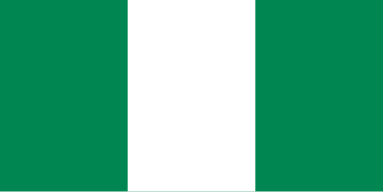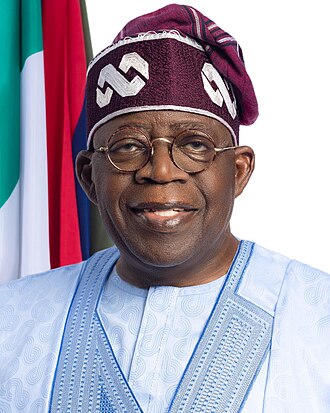Country Name: Nigeria
Country Flag:

Indigenous Roots: For millennia, the region now known as Nigeria was home to diverse indigenous cultures. Notably, the Nok culture thrived between 500 BCE and 200 CE, renowned for its advanced terracotta sculptures.
Pre-Colonial Kingdoms and Empires:
Between the 11th and 19th centuries, several influential kingdoms and empires dominated the area:
Kanem-Bornu Empire: Established around Lake Chad, it was a significant Islamic state known for trade and scholarship.
Oyo Empire: A dominant Yoruba state in southwestern Nigeria, celebrated for its military prowess and governance structures.
Benin Kingdom: Located in the south, it was famed for its artistic achievements, particularly in bronze and ivory works.
Sokoto Caliphate: Founded in the early 19th century by Usman dan Fodio, it became one of the largest empires in Africa, promoting Islam and trade across vast territories.
Colonial Legacy: The late 19th and early 20th centuries saw British colonial expansion in the region. Through military campaigns and treaties, Britain established control, culminating in the amalgamation of the Northern and Southern Protectorates and Lagos into the Colony and Protectorate of Nigeria in 1914. British rule introduced new administrative structures and economic systems, significantly impacting indigenous societies.
Path to Independence: Post-World War II, nationalist movements gained momentum, advocating for self-governance. In 1954, the Federation of Nigeria was established, granting greater autonomy to its regions. These efforts culminated in Nigeria achieving full independence from British rule on October 1, 1960.
Post-Independence Challenges: The early years of independence were marked by political instability, ethnic tensions, and economic challenges. A significant crisis was the Nigerian Civil War (1967–1970), also known as the Biafran War, resulting from the attempted secession of the southeastern region. The conflict led to substantial loss of life and highlighted deep-seated national divisions.
Modern Transformation: Since the late 20th century, Nigeria has experienced periods of military and civilian rule, with a return to democratic governance in 1999. The country has seen economic growth, particularly due to its oil industry, and has played a pivotal role in regional and international affairs. However, challenges such as corruption, economic inequality, and security concerns persist.
Cultural Influence: Nigeria’s rich cultural heritage, encompassing literature, music, film, and art, has gained global recognition. The country’s diverse ethnic groups contribute to a vibrant cultural landscape, making it a significant cultural hub in Africa.
Abuja
West Africa Time (WAT): The entire country operates on WAT, which is UTC+1
Position in the world: 32
Total Area: 910,770 Km² (351,650 sq. miles)
Arable land: 40.48%
Tropical Monsoon: In the South
Tropical Savannah: Most of the central regions
Sahelian hot and semi-arid climate: North of the country
Nigeria divided into 36 states:
Erosion: Soil and coastal erosion, including gully and coastal erosion, are significant problems, leading to land degradation and displacement.
Desertification: The expansion of the desert in the northern regions threatens agricultural lands and livelihoods.
Flooding: Nigeria experiences frequent and severe flooding, particularly in the Niger Delta region, impacting communities, infrastructure, and agriculture.
Storms: Tropical storms, windstorms, and dust storms can cause damage to property, infrastructure, and agriculture
Territorial Sea: Extends up to 12 nautical miles from the baseline, within which Nigeria exercises full sovereignty.
Contiguous Zone: Extends up to 24 nautical miles from the baseline, allowing Nigeria to enforce laws related to customs, immigration, and sanitation.
Exclusive Economic Zone (EEZ): Extends up to 200 nautical miles from the baseline, granting Nigeria exclusive rights to explore and exploit natural resources in the water column and seabed.
Continental Shelf: Extends up to 350 nautical miles from the baseline, where Nigeria has rights to exploit resources on and beneath the seabed. Notably, in May 2024, the United Nations approved Nigeria’s request to extend its continental shelf by approximately 16,300 square kilometers, an area about five times the size of Lagos State.
Power Structure: Nigeria operates as a federal presidential republic, with power distributed between the national government and 36 individual states. The President serves as both head of state and head of government, elected directly by the populace for a four-year term, with eligibility for one re-election. As of March 2025, President Bola Tinubu is in office, having been elected in 2023. The Vice President supports the President, and the Federal Executive Council, comprising appointed ministers, assists in executing governmental functions. The bicameral National Assembly, consisting of the Senate and the House of Representatives, holds legislative authority.
Coalitional Calculus: Nigeria’s political arena is characterized by a multi-party system, with the All Progressives Congress (APC) and the People’s Democratic Party (PDP) being the dominant parties. The APC currently holds the presidency and a majority in the National Assembly. The PDP, despite being the main opposition, faces internal divisions and challenges in mounting a unified front. The political landscape also includes other parties like the Labour Party and the New Nigeria Peoples Party (NNPP), which, despite their smaller size, contribute to the complexity of coalition-building. The necessity for alliances and coalitions is a hallmark of Nigerian politics, often leading to shifting allegiances and strategic partnerships among parties and politicians.
Left vs. Right Divide: The ideological spectrum in Nigeria is less defined by traditional left-right distinctions and more by ethnic, regional, and religious considerations. While economic policies and approaches to governance do vary among parties, the primary political divisions are often rooted in these sociocultural factors, influencing party platforms and voter alignments.
Regional Partnerships:
Nigeria plays a pivotal role in West Africa and the broader African continent. It is a leading member of the Economic Community of West African States (ECOWAS), actively participating in initiatives aimed at regional integration, economic development, and conflict resolution. Nigeria’s involvement in ECOWAS underscores its commitment to fostering stability and cooperation within the region.
China: The relationship between Nigeria and China has deepened, with both nations pledging cooperation in areas such as clean energy, defense, and finance. In January 2025, China committed to supporting Nigeria’s issuance of Panda bonds to fund infrastructure projects and expressed willingness to expand a currency swap agreement, enhancing financial collaboration.
United States: Nigeria maintains a strategic partnership with the United States, encompassing trade, security, and governance. While the relationship has experienced fluctuations, both countries continue to engage in dialogue and initiatives aimed at mutual interests, including counterterrorism efforts and economic cooperation.
European Union: The European Union remains a significant partner for Nigeria, particularly in trade, development aid, and support for democratic institutions. Collaborations focus on areas such as governance reforms, human rights, and economic development.
BRICS Group: Nigeria is not a formal member of the BRICS group (comprising Brazil, Russia, India, China, and South Africa); however, it engages with these emerging economies through various international forums and bilateral agreements, seeking to diversify its economic partnerships and enhance its role in global affairs.
Government Type:
Federal presidential republic.
President:
Bola Tinubu

All Progressives Congress (APC): Center-right
People’s Democratic Party (PDP): Center-right party
Labour Party (LP): Center-left ideologies
Every four years
Regional Leadership: Nigeria plays a pivotal role in West African affairs, actively participating in regional organizations such as the Economic Community of West African States (ECOWAS) to promote economic integration, peace, and stability within the region.
Multilateral Engagement: Nigeria is a member of various international organizations, including the United Nations, where it contributes to peacekeeping missions and engages in global discussions on development, security, and human rights.
South-South Cooperation: Nigeria emphasizes strengthening ties with other developing nations, particularly within Africa, to foster mutual economic growth, share technological advancements, and collaborate on addressing common challenges.
Economic Diplomacy: As Africa’s largest economy, Nigeria seeks to attract foreign investment and expand trade relationships, balancing partnerships with major global economies such as China, the United States, and the European Union to diversify its economic engagements and infrastructure development.
Size in World: ?
GDP: $199.72 billion (2024)
GDP per capita: $1,628 (2024)
Currency: Nigerian naira (NGN)
Dominant Economic Sector: Oil and Gas (oil exports account for a significant portion of Nigeria’s foreign exchange earnings)
Market Type: Mixed Economy (with oil dominating the economy alongside agricultural and services sectors)
Social Landscape
Population: 237.5 million
Position: Class Distribution
Gini Coefficient: 35.1 (2022)
Language
Official Language: English
Other Languages: Hausa, Yoruba, Igbo, Fulfulde, Kanuri, Ibibio, Tiv, and over 500 additional indigenous languages
Religion
Dominant Religions:
Islam: Approximately 50%
Christianity: Approximately 48.1%
Other Religions: Traditional African religions and other beliefs make up approximately 2%